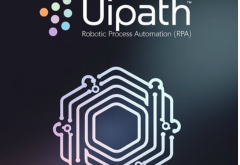Research conducted by Alteryx suggests that the current upskilling priorities of decision-makers may hinder the progress of artificial intelligence (AI) in India. Less than one-fifth of business leaders in the country prioritize critical thinking skills, despite concerns about the accuracy of AI-generated responses.
The findings, released by Alteryx, reveal a growing need for a shift in workforce skills as India prepares for an AI-driven labor market. However, there seems to be a disconnect between the skills currently emphasized in hiring processes and those required to fully leverage AI’s potential benefits.
New roles are expected to emerge as organizations adapt to the changing landscape, with many anticipating the need for a Chief AI Officer to oversee holistic AI strategies. Additionally, roles such as AI applications engineers, AI/ML engineers, and AI research scientists are identified as urgent hiring priorities.
As the future of work evolves, certain technical skills are projected to become obsolete, including database administration and repetitive coding. However, there is optimism about the availability of advanced tech talent, driven by the increasing accessibility of generative AI technology.
Despite the increasing importance of soft skills in collaborating with AI systems, the research highlights a continued emphasis on recruiting for roles with technical expertise. This raises questions about whether organizations are prioritizing the right skills for the evolving landscape.
While creativity and critical thinking are recognized as essential skills in an AI-driven world, they are not consistently prioritized in upskilling efforts. Instead, there is a focus on hard skills such as AI expertise and data analysis.
Libby Duane-Adams, Chief Advocacy Officer at Alteryx, emphasizes the importance of building a workforce equipped with creative problem-solving skills and data literacy to harness the potential of AI responsibly. Souma Das, Managing Director for India Sub-continent at Alteryx, underscores the need for continuous learning and adaptability to ensure that organizations in India can navigate the evolving AI landscape effectively while prioritizing societal well-being alongside economic development.
 Latest Technology News Today – Get Latest Information Technology Updates and Services Latest Technology News Today – Get Latest Information Technology Updates and Services
Latest Technology News Today – Get Latest Information Technology Updates and Services Latest Technology News Today – Get Latest Information Technology Updates and Services 









